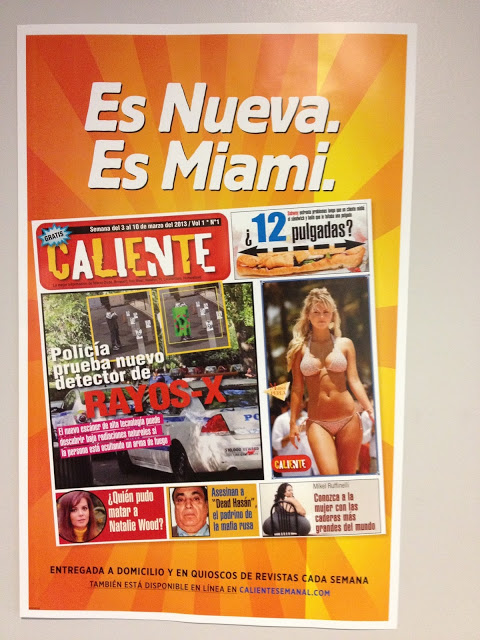
The Miami Herald has turned ‘Caliente’
MIAMI – We must recognize The Miami Herald’s importance to the South Florida community. In my case, I grew up with the Herald. And have always applauded their role in my hometown – from community watchdog to business and community leader.
Who can deny the fact that over the years their long list of excellent journalists made Miami a better place to live? The Herald and its reporters brought down corrupt politicians – something district attorneys were not able to do. And in the process they garnered Pulitzer Prizes, almost on a yearly basis. Names like Gene Miller, Edna Buchanan, Edwin Pope, Tom Fiedler, Carl Hiaasen, Ana Menendez, Jim DeFede and so many others offered opinions and straight-up, feet on the ground reporting that was second to none in the country.

I understand if you’re wondering where I’m going with this. Progreso Weekly has a history of criticizing The Miami Herald and its Spanish publication El Nuevo Herald. True. But we’ve done it because we always recognized the newspaper’s importance. And we were hoping to help push it to maintain its past excellence. We’ve failed!
I am reminded of one of Progreso’s most successful running columns ever, the now defunct “B.S. Detector.” Weekly we compared the “bilingual scam” wrought by carefully edited pieces in English and Spanish – in an effort to appease opposing sides of the newspaper’s Miami market. This was a column that explored the same written piece, by the same reporter or columnists, but with differing messages depending on what language it was read in, and all as a result of nifty editing. A scam performed with a very obvious slant to please the political extremes of the Cuban hard right in this area. A power group that although still very powerful, and economically important to the newspaper, is now in decline.
The beginning of the end
We understand that all newspapers around the country are in decline. I am told that the business model that once served this industry so well is no longer relevant in today’s world. A 15% profit margin once considered excellent is not enough for the hungry mouths of the conglomerates that now own newspapers. They want 25% and more. And they will not spare a thing to achieve it. Even when facts get in the way of the news…
Family-run businesses, as some of the best newspapers used to be (The New York Times, The Washington Post, and yes, The Miami Herald), are a thing of the past.
The Internet, as all of us who toil at Progreso Weekly know, has taken over the business of news. But this should not mean we must surrender the ethics and professionalism that should go with out work. Too often, especially since the decade of the 1990s, The Miami Herald has succumbed to the temptation of a better bottom line at the expense of a better newspaper. And it has not always worked out.
And the South Florida community has suffered too as a result. Our South Florida newspaper used to have a reporter that covered education, and many others that covered sports, police, the different municipalities and county, issues of the home… heck, we even had a wonderful weekend publication called Tropic.
Today, these and so many other areas are covered by just a handful of reporters. The fact is most are too busy to really dig deep into what’s happening. But it’s the bottom line that’s most important and the business side dictates, not really the news.
It is why we should not be surprised when we hear of three mayors indicted in ONE month. With a weak Miami Herald to watch out for us, who knows how many more crooks are getting away with who knows what around Miami-Dade County.
A solution?
Starting next week, Wednesday Sept. 18, The Miami Herald will start publishing ‘Caliente.’ It is being described by some on the inside as a weekly, gossipy magazine that is sure to be a “moneymaker, until it goes out of business…”
It will be published in Spanish. Delivered in six Miami-Dade zip codes with emphasis on the Hialeah and Little Havana areas. Circulation is expected at around 68,000.
“But not only gossip,” I was told. “There will be plenty of T & A displayed.” (Tits and Ass).
Before hanging up with a source from the Herald, I was informed that [at The Miami Herald] “we are in survival mode.”
Too bad, I thought. Except for an occasional news item from the two or three very good reporters they have left (that usually end up at The New York Times, The Washington Post or some other newspaper), it’s hard to read The Miami Herald these days.

